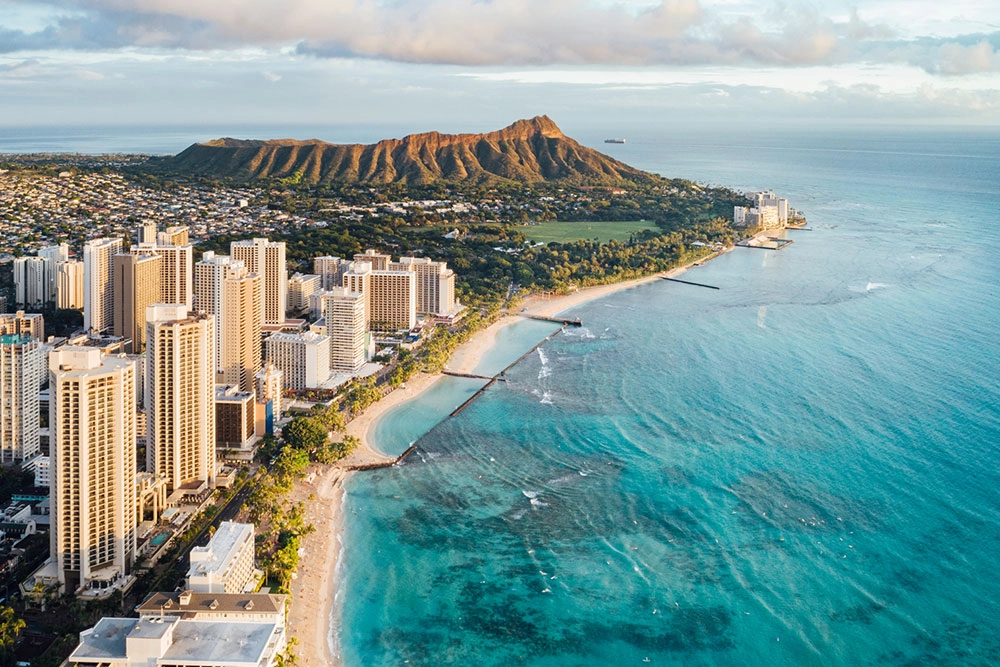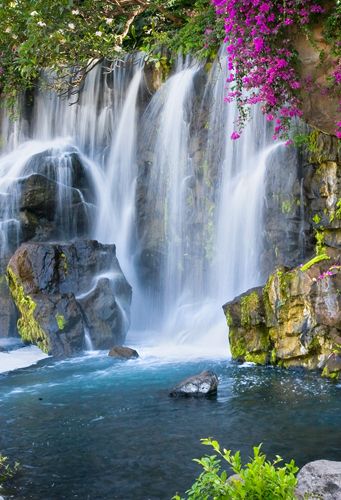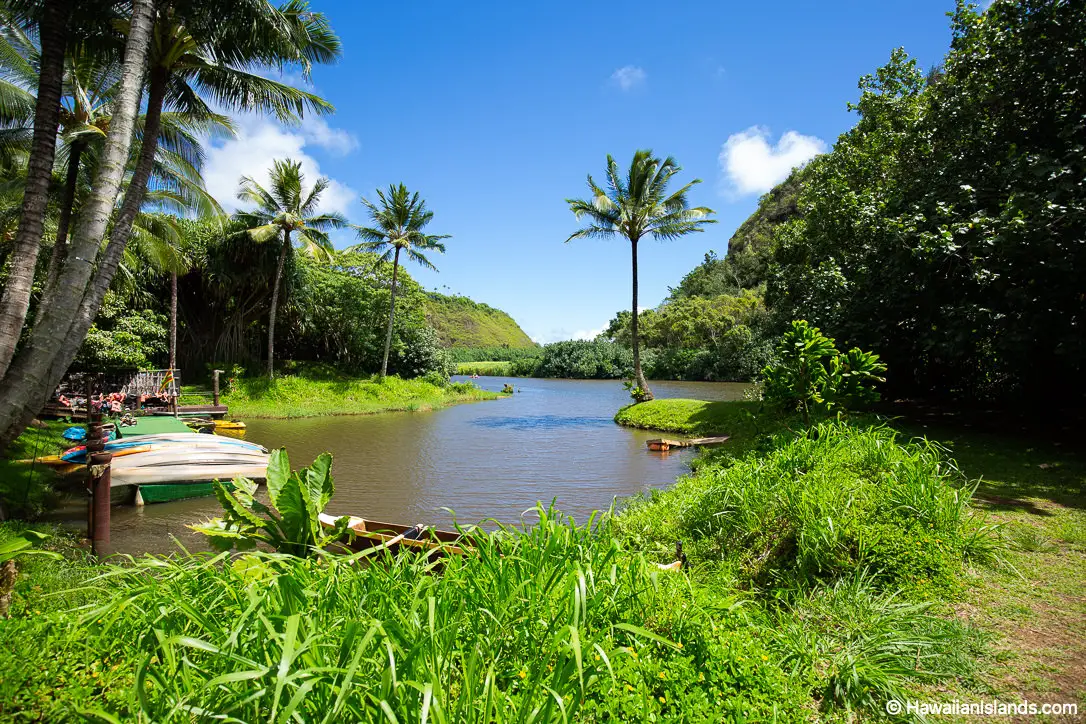Are you thinking of moving to Hawaii? Before you make the big move, it’s important to consider both the pros and cons of living in the tropical paradise. With its breathtaking beaches, lush jungles, and vibrant culture, the allure of Hawaii is undeniable.
But there are some downsides to living on an island too. In this blog post, we’ll take a look at the 15 honest pros and cons of living in Hawaii so you can make an informed decision about your future home.
Weather
When it comes to the weather in Hawaii, there’s no denying that it’s one of the biggest pros of living on the islands. With its year-round tropical climate, Hawaii offers warm temperatures and plenty of sunshine. This means you can say goodbye to the harsh winter weather and enjoy outdoor activities all year long.
The trade winds that blow across the islands provide a pleasant breeze and help to regulate the temperature, making it feel comfortable even during the hottest months. The average temperature in Hawaii ranges from the mid-70s to low-80s Fahrenheit (around 24-28 degrees Celsius), creating the perfect environment for beach days, hiking, and other outdoor adventures.
However, it’s important to note that the weather can vary between the different islands and even within different regions of each island. The windward sides tend to receive more rain and have lusher landscapes, while the leeward sides are typically drier and sunnier.
Overall, the weather in Hawaii is undoubtedly a major selling point. So if you’re someone who loves warm weather and sunshine, living in Hawaii may be a dream come true for you.
Cost of Living
Living in Hawaii comes with a higher cost of living compared to many other places in the United States. The price of housing, groceries, and utilities tend to be higher in Hawaii, which can take a toll on your budget. Finding affordable housing can be particularly challenging, as the demand for housing often outweighs the supply. Rental prices, especially in popular tourist areas, can be exorbitant. Additionally, groceries and dining out can be expensive due to the high cost of importing goods to the islands.
However, it’s important to note that salaries in Hawaii can also be higher compared to other states, especially in industries like tourism, hospitality, and healthcare. The state also has a lower state income tax rate, which can help offset some of the higher costs.
Ultimately, the cost of living in Hawaii depends on your lifestyle and financial situation. If you are willing to make adjustments and prioritize your spending, it is possible to live comfortably within your means. Just be prepared for a higher price tag on everyday necessities.
Job Opportunities
When it comes to job opportunities, Hawaii presents both challenges and advantages. The tourism industry is a major contributor to the economy, providing numerous job openings in hospitality, tourism, and service industries. If you have experience or skills in these areas, you’ll likely find many job options available.
The healthcare industry is also growing rapidly in Hawaii, with a high demand for medical professionals. From nurses to doctors and therapists, there are opportunities for those in the healthcare field to establish a career.
However, it’s important to note that the job market in Hawaii can be competitive, especially for positions outside of the tourism and healthcare sectors. The limited size of the islands means that job openings may be more limited compared to larger states. Additionally, the cost of living can make it challenging to secure a job that pays enough to comfortably support yourself.
If you’re considering a move to Hawaii, it’s important to research job prospects in your specific field and network with locals to gain insights and potential job leads. While there are opportunities available, it may require more effort and persistence to find the right job that meets your needs and expectations.
Traffic
Traffic can be a major headache in Hawaii, especially in more populated areas like Honolulu. The island’s limited infrastructure and growing population contribute to congested roads and long commute times. Rush hour traffic can be frustrating and stressful, causing delays and adding extra time to your daily commute.
One of the main causes of traffic in Hawaii is the reliance on personal vehicles. Public transportation options are limited, with the bus system being the primary mode of transportation. While the bus can be a convenient and affordable option for some, it may not be practical for everyone, especially if you live in a more rural area.
Additionally, the island’s narrow and winding roads, especially in more rural areas, can be challenging to navigate and lead to increased traffic congestion. Construction projects and road closures are also common, further exacerbating traffic issues.
It’s important to plan ahead and allow extra time for travel, especially during peak hours. Carpooling or using alternative transportation methods like biking or walking can also help alleviate some of the traffic woes.
Overall, while Hawaii’s traffic can be frustrating at times, with careful planning and a little patience, you can navigate the roads and minimize the impact on your daily life.
Culture Shock
Moving to Hawaii can be a culture shock, especially if you are coming from a vastly different place. The unique blend of Hawaiian, Polynesian, Asian, and American cultures creates a vibrant and diverse atmosphere, but it can take some time to adjust. One aspect of the culture shock in Hawaii is the “Aloha spirit” – the warm and welcoming attitude of the locals. People in Hawaii tend to be friendly, open, and laid-back, which can be refreshing for some, but it may take some getting used to if you come from a fast-paced and more reserved environment.
Another aspect of the culture shock is the emphasis on family and community. Hawaiian culture values ohana (family) and often emphasizes spending time together and building strong relationships. This can be seen in community events, festivals, and traditions that celebrate Hawaiian culture.
Language can also play a role in the culture shock. While English is widely spoken in Hawaii, you may encounter locals speaking Hawaiian or Pidgin English, which is a unique dialect that blends different languages. Learning a few basic Hawaiian words and phrases can help you navigate daily interactions and show respect for the local culture.
Lastly, the food and cuisine in Hawaii can be a delightful but unfamiliar experience for some. Traditional Hawaiian dishes like poi, laulau, and poke may be new to your taste buds, but exploring the local cuisine can be a fun and adventurous part of the culture shock.
Overall, embracing the cultural differences and being open to new experiences is key to navigating the culture shock of living in Hawaii. The welcoming spirit of the islands and the rich cultural heritage make it an exciting and immersive place to call home.
Accessibility
Accessibility in Hawaii is an important factor to consider when deciding to move to the islands. While Hawaii is known for its beauty and natural wonders, it can pose challenges when it comes to accessibility. The remote location of the islands means that getting to and from Hawaii can be more difficult and expensive compared to other destinations.
Flights to and from the mainland can be pricey, especially during peak travel seasons. Additionally, the distance from major cities and transportation hubs can result in longer travel times. Once on the islands, getting around can also be a challenge. Public transportation options are limited, with the bus system being the primary mode of transportation.
This may not be convenient for everyone, especially if you live in a more rural area. Renting a car can be expensive, and parking can be a hassle in more populated areas. It’s important to plan ahead and consider the accessibility factors before making the move to Hawaii.
Education System
The education system in Hawaii offers a unique blend of opportunities and challenges. On the positive side, Hawaii is home to a diverse and multicultural population, and the education system reflects this diversity. Students have the opportunity to learn about different cultures and perspectives, creating a rich and inclusive learning environment. Additionally, the natural beauty of the islands provides a unique backdrop for outdoor education and experiential learning opportunities.
However, there are also some challenges within the education system. Hawaii has struggled with lower educational attainment rates compared to other states, with factors such as language barriers and socioeconomic disparities impacting student outcomes. The state has been working to address these challenges by implementing initiatives focused on improving teacher quality, increasing access to early childhood education, and promoting student success.
It’s important to research and consider the specific school districts and schools in the area you are considering moving to. Some areas may have higher quality schools with strong academic programs and extracurricular opportunities, while others may face more challenges.
Overall, while the education system in Hawaii may have its challenges, there are also unique opportunities for students to learn and grow in a diverse and vibrant environment.
Outdoor Activities
When it comes to outdoor activities, Hawaii is an absolute paradise. The islands offer a wide range of opportunities to explore and enjoy the breathtaking natural beauty. Whether you’re a beach lover, hiker, surfer, or just enjoy being surrounded by nature, Hawaii has something for everyone.
One of the biggest perks of living in Hawaii is the access to stunning beaches. From the famous Waikiki Beach in Oahu to the secluded shores of Lanikai in Kailua, you’ll never be far from crystal-clear waters and soft sand. Whether you want to relax and soak up the sun or try your hand at water sports like snorkeling or paddleboarding, there’s no shortage of beach activities to enjoy.
If you’re a nature enthusiast, Hawaii offers a plethora of hiking trails and opportunities to explore its lush landscapes. From the challenging trails of the Napali Coast in Kauai to the iconic Diamond Head Crater in Oahu, there are options for all fitness levels and preferences. The diverse flora and fauna, stunning waterfalls, and panoramic views make every hike an adventure.
For those who love water sports, Hawaii is a dream come true. The islands are renowned for their world-class surfing conditions, attracting surfers from around the globe. Whether you’re a beginner or an experienced surfer, you’ll find waves to suit your skill level. Other water activities like snorkeling, scuba diving, and paddleboarding are also popular and offer opportunities to explore the vibrant marine life that surrounds the islands.
Aside from the more traditional outdoor activities, Hawaii also offers unique experiences like zip-lining through lush valleys, taking helicopter tours over volcanic landscapes, or swimming with dolphins in their natural habitat.
No matter your outdoor interests, Hawaii has something for everyone. The diverse landscapes, favorable weather conditions, and countless activities make it an outdoor enthusiast’s paradise. Whether you want to relax on the beach, hike through tropical jungles, or dive into the crystal-clear waters, Hawaii offers endless opportunities for adventure and exploration.
Diversity
Living in Hawaii offers a unique and diverse cultural experience. The islands are known for their rich blend of Hawaiian, Polynesian, Asian, and American cultures, creating a vibrant and welcoming community. One of the biggest benefits of living in Hawaii is the opportunity to immerse yourself in this multicultural environment. The local residents, known for their warm Aloha spirit, embrace diversity and are open to different cultures and perspectives.
In Hawaii, you’ll find a melting pot of traditions, languages, and cuisines. From the traditional hula dances and cultural festivals to the wide array of culinary delights, there is always something new and exciting to discover. The blend of cultures in Hawaii creates a unique sense of identity and a strong sense of community.
Additionally, the diversity in Hawaii extends beyond just cultural diversity. The islands are home to a wide range of ecosystems, from lush rainforests to arid deserts and volcanic landscapes. This diversity in nature provides endless opportunities for outdoor enthusiasts to explore and appreciate the natural beauty of the islands.
Living in Hawaii means embracing and celebrating diversity in all its forms, from cultural traditions to natural wonders. It’s an opportunity to broaden your horizons and experience a truly multicultural lifestyle.
Health Care
When it comes to health care in Hawaii, you can expect a high standard of care and access to quality medical services. The state has a robust health care system with a variety of hospitals, clinics, and specialists available. The facilities are modern and well-equipped, providing comprehensive care for a wide range of medical needs.
One of the advantages of living in Hawaii is the emphasis on preventive care and wellness. The island lifestyle promotes a healthy and active lifestyle, and many residents take advantage of the beautiful surroundings to engage in outdoor activities and maintain a balanced diet. Additionally, the strong sense of community and the Aloha spirit in Hawaii often extends to health care, with residents supporting each other in times of illness or need.
Hawaii is also known for its high life expectancy and low rates of certain chronic diseases. The state has a focus on public health initiatives and education, which helps to promote healthy behaviors and reduce the risk of health problems.
However, it’s important to note that health care costs in Hawaii can be high. The high cost of living in the state also extends to health care expenses, including insurance premiums, copayments, and prescription drugs. It’s essential to have health insurance coverage to ensure access to affordable care.
Overall, while health care in Hawaii is generally excellent, it’s important to plan and budget for the costs associated with medical care. Researching health insurance options and understanding the local health care system will help ensure you have the necessary resources for any health needs that may arise during your time in Hawaii.
Natural Disasters
Living in Hawaii, you have to be prepared for the potential of natural disasters. While the islands are undoubtedly beautiful, they are also prone to a variety of natural events, including hurricanes, volcanic eruptions, and tsunamis.
Hurricanes are a real threat in Hawaii, especially during the peak hurricane season from June to November. These powerful storms can bring strong winds, heavy rainfall, and flooding, causing significant damage to homes and infrastructure. It’s important to stay informed about hurricane warnings and have an emergency plan in place.
The volcanic activity in Hawaii is another aspect to consider. The islands are home to active volcanoes, such as Kilauea, which can occasionally erupt and result in lava flows. While volcanic eruptions are a rare occurrence, they can pose a risk to nearby communities and require evacuations.
Tsunamis are another potential hazard in Hawaii, especially after underwater earthquakes in the Pacific Ocean. These large ocean waves can cause significant damage and loss of life, making it essential to have a plan in place and follow evacuation protocols.
Living in Hawaii means being prepared for these natural events and staying informed about any potential risks. It’s important to have an emergency kit stocked with essential supplies, follow evacuation orders when necessary, and have a plan in place to ensure your safety and the safety of your loved ones. While the natural beauty of Hawaii is unparalleled, it’s important to be aware of and prepared for the potential natural disasters that come with living in paradise.
Social Scene
Living in Hawaii offers a vibrant and welcoming social scene that embraces the island’s diverse cultural heritage. The local residents, known for their warm Aloha spirit, create a sense of community that extends to social gatherings and events. From neighborhood block parties to traditional Hawaiian festivals, there are countless opportunities to connect with others and make lifelong friendships.
Hawaii also has a thriving arts and music scene, with a range of cultural performances, concerts, and art exhibits taking place throughout the islands. From hula dances to live ukulele performances, you can immerse yourself in the rich traditions of Hawaii and experience the unique artistic expressions of its people.
The social scene in Hawaii extends beyond just the local community. The islands attract tourists from all over the world, creating a diverse mix of people to meet and interact with. Whether you’re enjoying a sunset on the beach or exploring the local cuisine, you’re bound to strike up a conversation and make connections with people from all walks of life.
Overall, the social scene in Hawaii offers a sense of inclusivity and belonging. Whether you prefer quiet gatherings with close friends or large social events, you’ll find a variety of opportunities to engage and connect with others. The warm and welcoming atmosphere of the island makes it easy to form new relationships and create lasting memories. So, get ready to embrace the social scene in Hawaii and make friends for life.
Public Transportation
If you’re considering a move to Hawaii, you might be wondering about the public transportation options available. While the islands are known for their stunning landscapes and natural beauty, public transportation in Hawaii is not as extensive as in larger cities or states. The primary mode of public transportation in Hawaii is the bus system, which is operated by The Bus.
The Bus provides service to various areas on the islands, making it a convenient and affordable option for many residents. However, it’s important to note that the bus routes and schedules may not be as frequent or extensive as in other locations. This means that planning your routes and allowing for extra travel time is essential.
Additionally, if you live in a more rural area, public transportation options may be more limited. Renting a car or having your own vehicle can be more convenient for getting around, especially if you need to commute or travel longer distances. It’s also worth noting that parking in more populated areas can be a challenge, so it’s important to plan accordingly.
While public transportation may not be as comprehensive as in other places, with some careful planning and flexibility, you can still navigate the islands and enjoy all that Hawaii has to offer. Whether it’s a bus ride to the beach or exploring the local attractions, public transportation can be a practical and budget-friendly option for getting around Hawaii.
Real Estate Market
If you’re considering a move to Hawaii, it’s important to understand the unique real estate market on the islands. The real estate market in Hawaii is known for being competitive and expensive, making it a challenge to find affordable housing.
The demand for housing often outweighs the supply, driving up prices and creating a seller’s market. This can make it difficult to find a home that fits your budget and preferences. Additionally, the popular tourist areas tend to have even higher housing prices due to their desirable locations. Renting a home can also be pricey, especially in these tourist areas. It’s important to start your search early and be prepared for the possibility of facing stiff competition for available properties.
Working with a local real estate agent who understands the market can be beneficial in navigating the challenges of finding a home in Hawaii. Despite the high costs, many people find that the beauty and lifestyle of Hawaii make it worth the investment in real estate. Just be prepared to be patient and flexible in your search for the perfect home.




